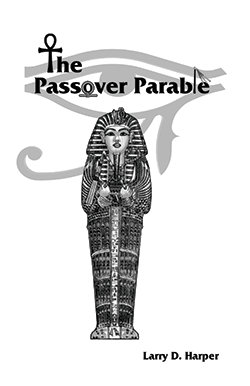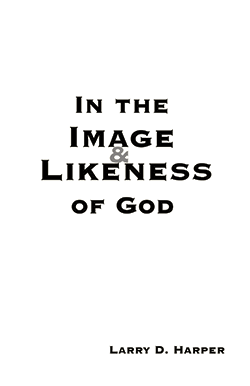The Prophets of Israel Were Sent to Restore
The Prophets of Israel were God’s “mouth.” They were responsible for conveying the Word of God to the sons of Israel so that everyone in Israel might have sufficient knowledge of the Truth to be saved through faith (belief) in the Truth of the Word of God. Contrary to what many Christians today believe, New Testament Believers were not the first to be saved by faith in the Word of God. As the author of the Book of Hebrews plainly states, Old Testament Believers were also saved by faith (belief) in the Truth of the Word of God:
And all these, having gained approval through their faith, did not receive what was promised, because God had provided something better for us, so that apart from us they should not be made perfect.
(Hebrews 11:39–40) —NASB
The first of the Prophets of Israel was Moses. At God’s behest, Moses taught the sons of Israel the meaning and significance of the parabolic images that explained God’s purpose in the birth, life, death, and Resurrection of Jesus Christ. That is, The Teaching of Moses utilized parabolic images and Hebrew idioms—which are the two constituent parts of parables—to teach concerning Jesus Christ.
The parables of The Teaching of Moses conveyed specific information about the coming Messiah, Jesus Christ, that the sons of Israel needed to know and believe in order to be saved. Sadly, the sons of Israel did not believe The Teaching of Moses, so God repeatedly sent other Prophets of Israel to restore the Truth of the Word of God that Moses had taught the sons of Israel in the wilderness of Sinai. All of the prophecies of Moses and the Prophets of Israel ultimately explain God’s purpose in the birth, life, death, and Resurrection of Jesus Christ. Jesus said as much Himself on several occasions:
And beginning with Moses and with all the prophets, He explained to them the things concerning Himself in all the Scriptures. … Now He said to them, “These are My words which I spoke to you while I was still with you, that all things which are written about Me in the Law of Moses and the Prophets and the Psalms must be fulfilled.”
(Luke 24:27, 44) —NASB
“Do not think that I will accuse you before the Father; the one who accuses you is Moses, in whom you have set your hope. For if you believed Moses, you would believe Me; for he wrote of Me.”
(John 5:45–46) —NASB
The fact that the sons of Israel ultimately crucified their Messiah provides sufficient evidence that they had somehow lost an accurate understanding of the Truth of The Teaching of Moses that the Prophets of Israel repeatedly restored. The Apostle Paul makes it clear they crucified their Messiah because they had long since lost insight into the Mystery that had been handed down to them by Moses and repeatedly restored by the Prophets of Israel:
Yet we do speak wisdom among those who are mature; a wisdom, however, not of this age, nor of the rulers of this age, who are passing away; but we speak God’s wisdom in a mystery, the hidden {wisdom}, which God predestined before the ages to our glory; {the wisdom} which none of the rulers of this age has understood; for if they had understood it, they would not have crucified the Lord of glory.
(1 Corinthians 2:6–8) —NASB
Related Information

The Passover Parable
Jesus said the writings of Moses, the Prophets, and the Psalms—that is, the entirety of the Hebrew Scriptures—are all about Him (Luke 24:27, 44; John 5:46). Yet few today can find any reference to Jesus Christ in the Hebrew Scriptures because they don’t understand that God has used parables since the time of Moses to speak concerning His Son. The Passover Parable is at the heart of God’s message concerning His Firstborn Son, Jesus Christ. That message can be seen in the carefully orchestrated parabolic pantomime that God directed Corporate Israel, His Firstborn Son (Ex. 4:22), to enact during the Exodus of the sons of Israel from Egypt.

In the Image and Likeness of God
Skeptics like to point out the apparent contradictions that exist in the Creation Account to prove the biblical text is not reliable. Here, for the first time since the Early Church lost The Apostolic Teaching, is an explanation of that account that not only makes sense; it also agrees completely with things the Early Church Father Irenæus wrote in his monumental second-century work, “Against Heresies.”
The Truth is Available
Check Out the Online Library
Browse through our library of eBooks and newsletters—absolutely free!
Start Reading Now